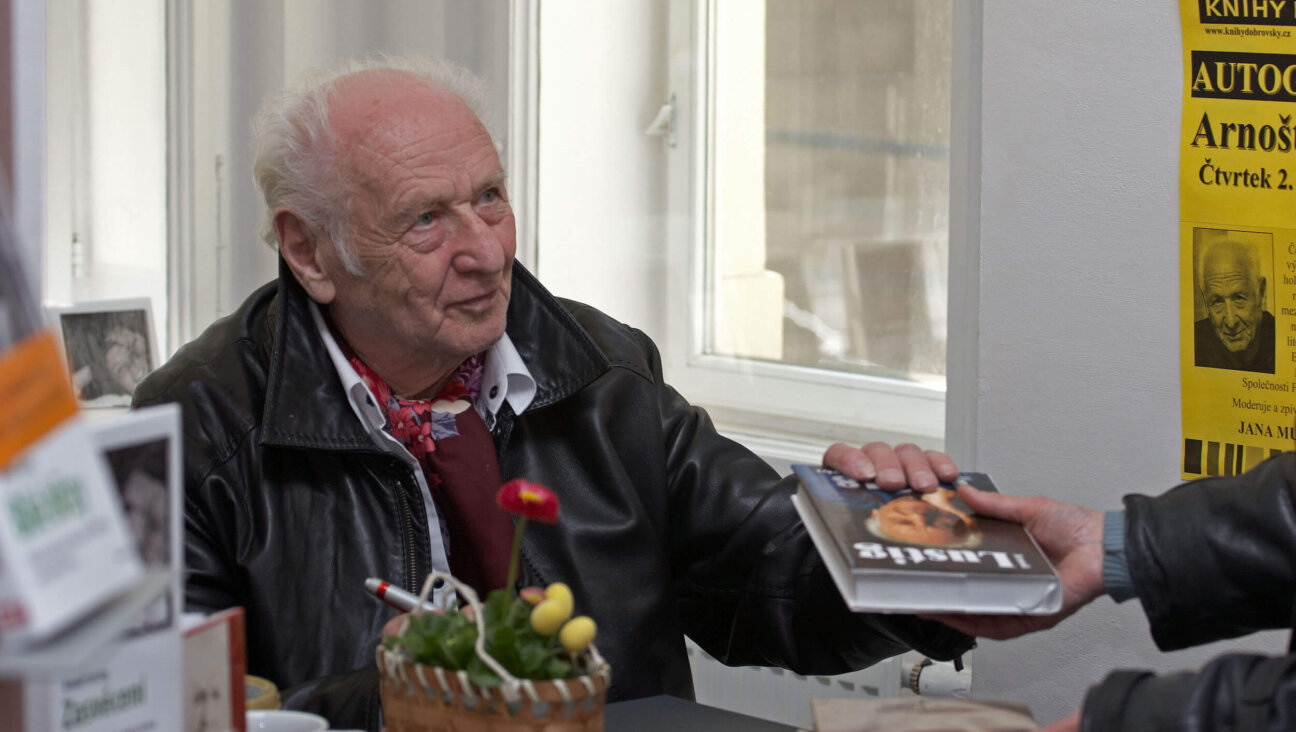Restraint Follows Attacks by Hamas, Islamic Jihad
SDEROT, Israel — Israeli officials were doing their best to maintain restraint and resist pressure to respond in kind to Palestinian rocket and mortar attacks in Gaza and the Negev on Tuesday, the bloodiest day in the territories since February’s Sharm el-Sheikh regional summit.
The Palestinian attacks, by the Islamic militant groups Hamas and Islamic Jihad, left three people dead in a Gaza Jewish settlement. They were described by the two groups as retaliations for Israeli actions earlier in the day in the West Bank, which left two Palestinians dead.
In reality, however, Israeli officials view the Palestinian attacks as a reflection of the growing tension between Hamas and the ruling Fatah movement over the decision this week by Mahmoud Abbas, chairman of the Palestinian Authority, to postpone Palestinian legislative elections scheduled for July. The postponement came after the Palestinian legislature refused to pass Abbas’s election bill, approving instead an election plan that was seen as weakening Fatah’s chances and strengthening Hamas.
The violence began early Tuesday morning with a Qassam rocket barrage on the Negev town of Sderot, which caused damage but no injuries. Hamas claimed it was acting in response to a clash Monday between Palestinian worshippers and right-wing Jews seeking to enter the Temple Mount.
Islamic Jihad launched a second volley on Sderot in the afternoon, reportedly in retaliation for an army raid in the West Bank that ended with the death of a Jihad gunman. Army sources said they had gone to arrest the gunman, Marwah Kamil, because he led a Jihad cell that was planning new attacks. His family opened fire on the troops, and he was killed in the exchange.
In a separate incident, a Qassam rocket was fired at a packing shed in the Gaza Jewish settlement of Ganei Tal, killing three workers — two Palestinians and a Chinese man — and wounding five other Palestinian workers.
Israel’s military chief of staff, Dan Halutz, was visiting Sderot that evening on his second day on the job. He said that Israel would “do whatever is necessary when we decide to do so. There is no doubt that at a certain point our patience will run out.”
But army officials said that Israel hoped to avoid responding for now in order to let Abbas handle the crisis himself. An Israeli operation, they said, could provide the P.A. with an excuse not to act against Hamas and Islamic Jihad. Abbas was to visit Gaza this week to meet with Hamas leaders and insist they maintain the cease-fire.
Army sources stressed that tensions in Gaza rise every two weeks or so and then seems to subside. They predicted that the pattern would hold this time, as well, because all sides have an interest in maintaining the relative quiet. Despite Hamas’s threats, it favors disengagement and does not want to be accused by the Palestinian public of torpedoing the pullout.
Israel, for its part, needs the P.A. as a partner, if only a limited one, for coordinating the withdrawal, Israel’s top priority. Were Israel to go deep into Gaza, it would not necessarily stop the Qassam attacks — previous campaigns did not — but it most likely would cause the collapse of what is left of the Palestinian Authority’s hold there.
Defense Minister Shaul Mofaz was to meet Wednesday with the Palestinian interior minister, Nasser Yousef, to discuss the deteriorating situation.
Teams of Israeli and Palestinian negotiators met this week to begin formal coordination of the Israeli withdrawal and handover in Gaza. Israel offered to construct a rail line connecting Gaza and the West Bank in order to create a safe passage between the two regions, a commitment that Israel made several years ago but has not yet fulfilled.
However, the talks broke down when the Palestinians walked out, accusing Israel of giving them outdated and inadequate maps of the Gaza facilities to be handed over following withdrawal. Israeli sources said certain maps would have posed a security risk.
Settler leaders attacked the army’s policy of restraint in the face of Palestinian attacks, as well as the planned pullout itself. Gaza Coast Regional Council spokesman Eran Sternberg said that the deadly attack “reflects the depth of the idiocy of Sharon’s plan, the essence of which is granting a prize to base murderers, who for the chance of killing Jews will hurt innocents from among their people and other nationalities.”
Halutz brushed aside demands for retaliation, saying: “I suggest that as a country, we not behave like terrorists. I have no intention of getting all worked up. I want to do everything with due contemplation. Getting worked up is not a work plan.”
Privately, defense sources conceded that the identities of the day’s victims — Palestinian and Chinese laborers — reduced the pressure from the right for retaliation and gave Israel some breathing space. However, if the Qassams continue to fall on Sderot with greater frequency, the prime minister will be under greater pressure to act.













